E-Portfolio
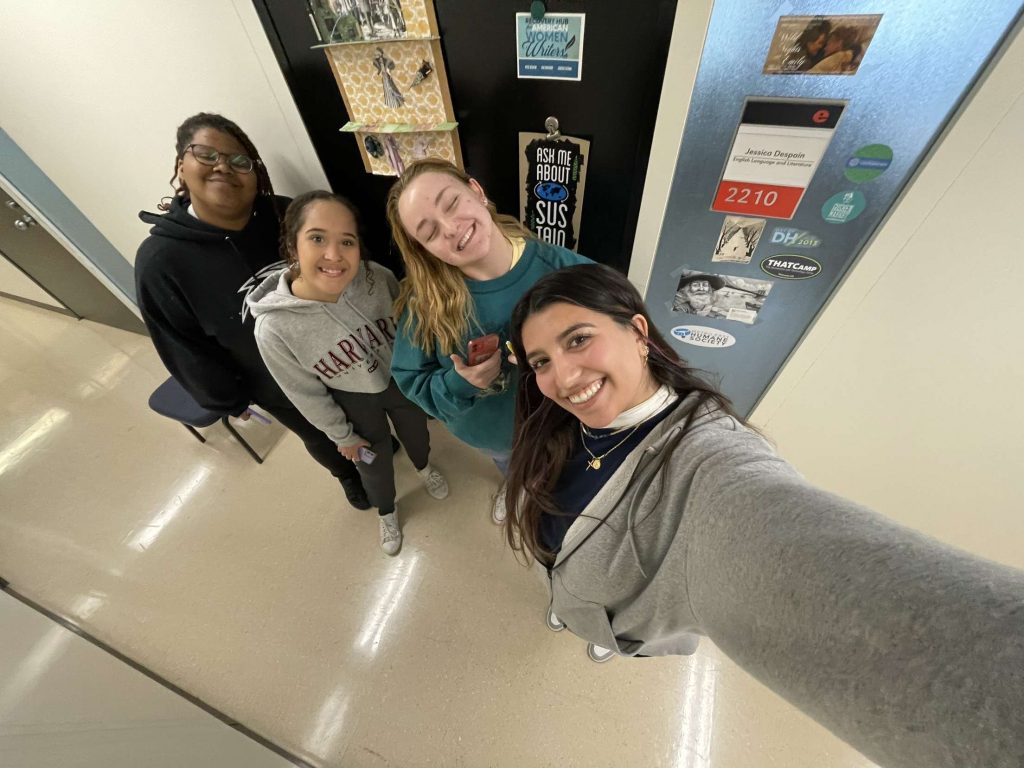
Introduction: Throughout this semester we have had to do a lot of work behind the scenes. Starting with collaborating as a team to make our own class syllabus. This acted as our foundation for all of our projects and for what we were able to accomplish this semester. We focused on a lot of interviews and critical thinking to come up with our three main research questions that we focused on for the YWCA. Our collaborating consisted of brainstorming ideas, learning of others’ cultures and specifically the culture and background of Alton. We watched movies related to topics useful to our research, and found and analyzed sources specific to each topic we were covering. We had the opportunity to do lots of hands-on research such as social experiments including interviews, photo-voice, and participatory GIS. In doing all of this we were able to gather lots of useful information that can now be used to grow our knowledge and success with the YWCA. Although this was all a team effort, we all had to put in effort individually including myself. I chose five goals that I would use throughout this semester. Those goals were: Critical and Creative Thinking, Ethical Reasoning, Collaboration, Reading, and Intercultural Knowledge.
Goal 1: (20%)
Critical and creative thinking: Be able to comprehend and deliver topics clearly, develop logical plans to solve problems by analyzing others research and assumptions, take risks, transform ideas from multiple texts and combine the knowledge obtained.
I was able to accomplish this goal by reading articles provided in class, researching topics I don’t understand, and asking questions.
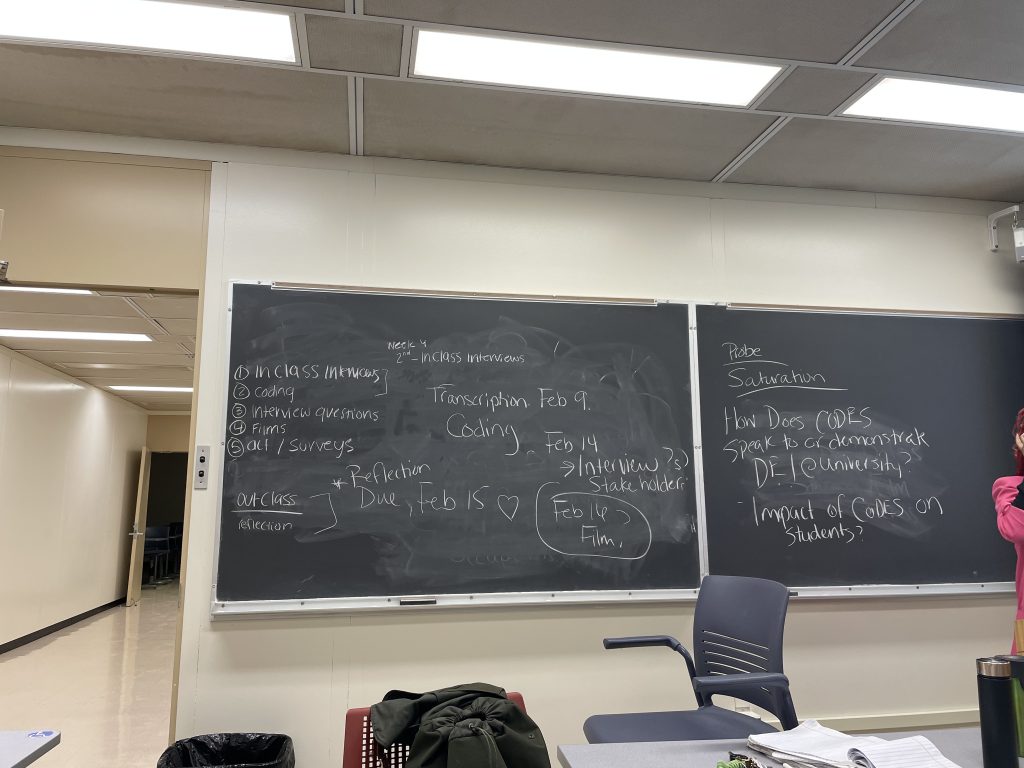
Goal 2: (20%)
Ethical reasoning: Identifies and analyzes their core beliefs and reflects upon their origin, Recognizes multilayered ethical issues and the cross-relationships among them, independently applies ethical concepts to an ethical question, accurately, and considers full implications of the application.
I was able to accomplish this goal by including different perspectives and viewpoints that include ethical viewpoints.
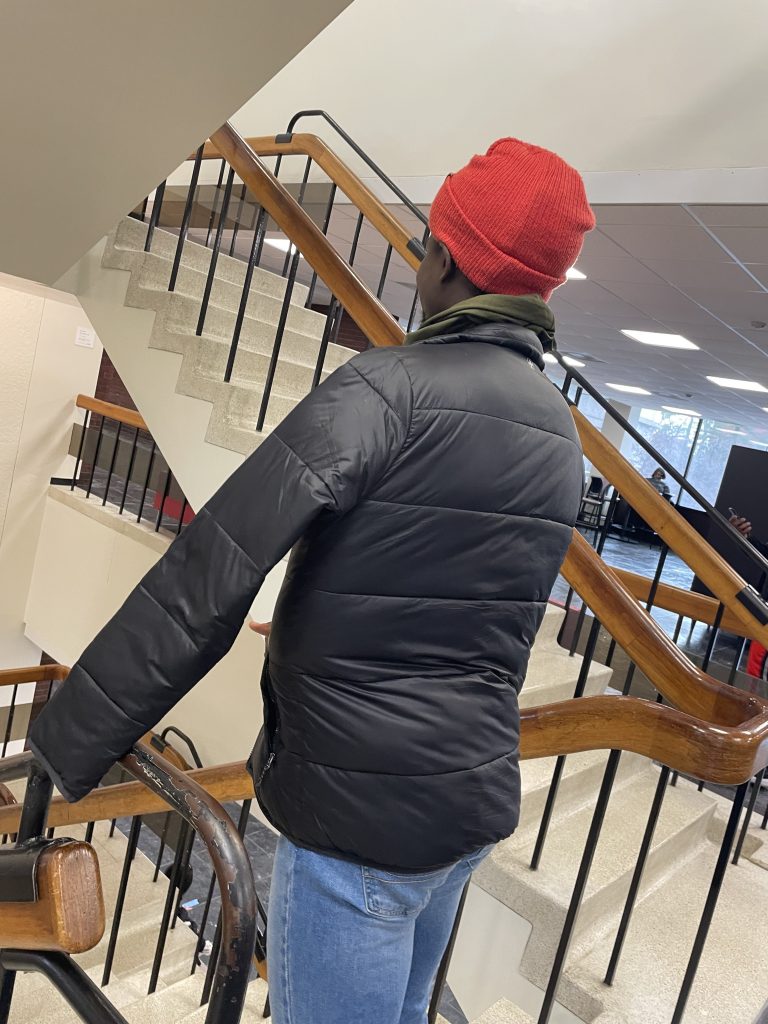
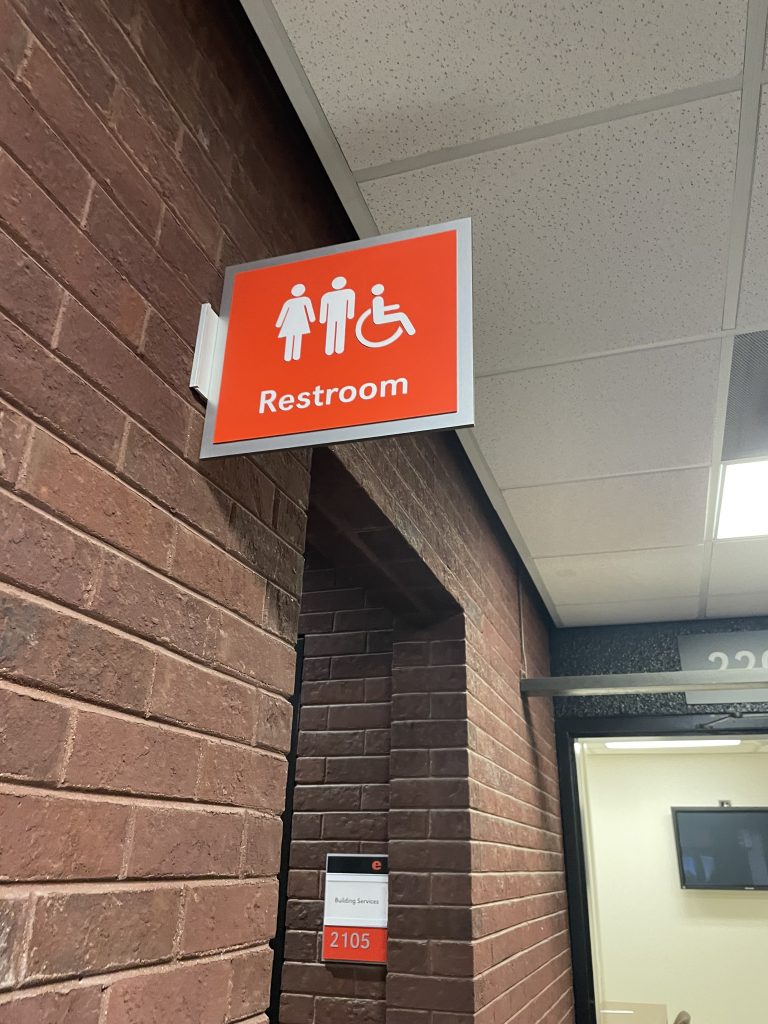
These two pictures were apart of a photo-voice project we did that was about spacial awareness and what parts of campus could use more inclusion that incorporates other core beliefs and ethical issues.
Goal 3: (20%)
Collaboration: Helps collaboration move forward by articulating the merits of alternative ideas or proposals, facilitates collaborators’ contributions by building upon or synthesizing their contributions as well as noticing when someone is not participating and inviting them to engage, works independently toward team goals by contributing to efforts and meeting deadlines.
I was able to accomplish this goal by participation, in class group activities, written analysis of any interviews, and contributing to group ideas.
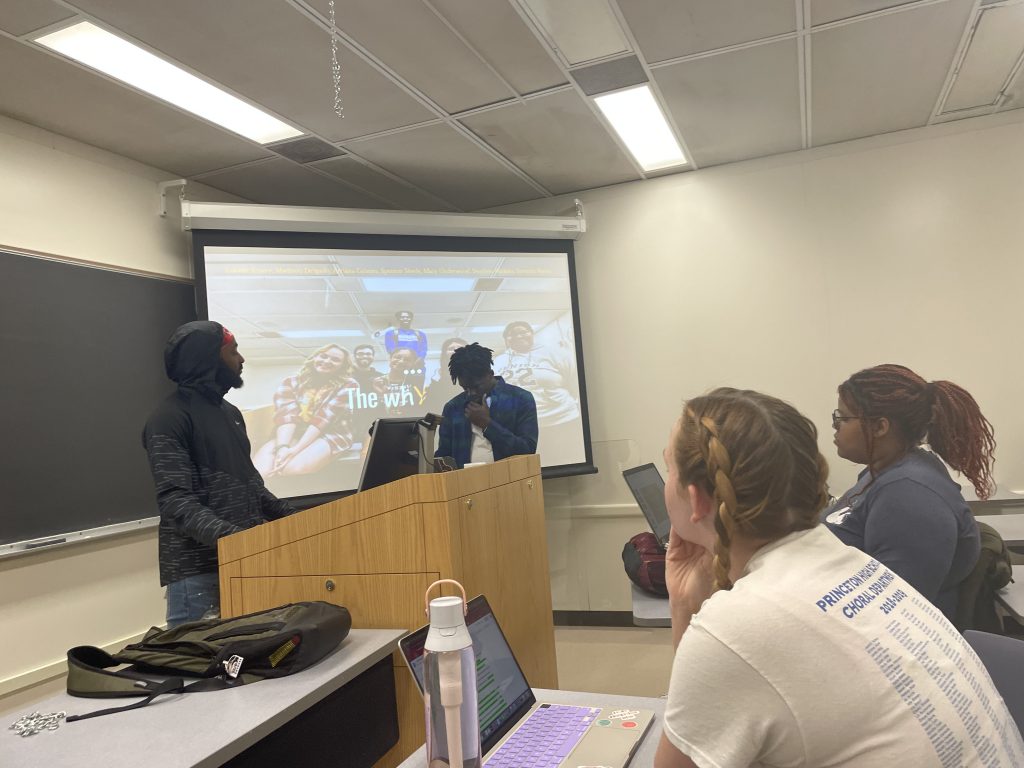
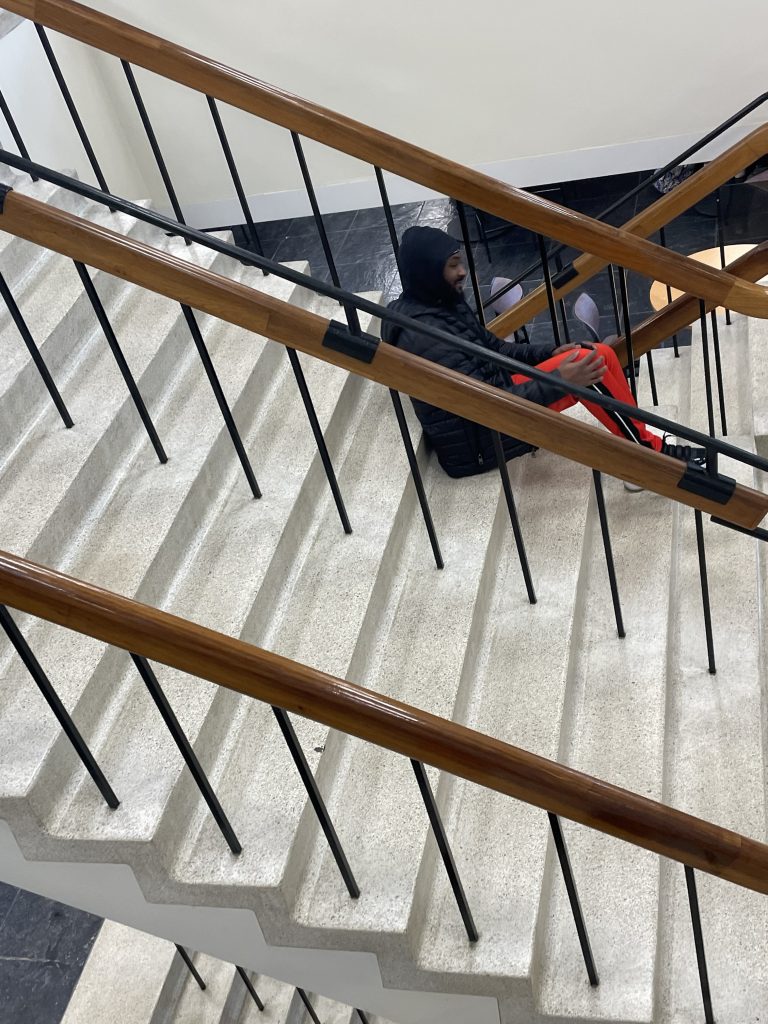
Goal 4: (20%)
Reading: Evaluates texts’ scholarly significance to apply reading to other contexts or issues, identifies texts within and across genres, monitoring and adjusting reading strategies and expectations based on their generic nuances, reads by using an appropriate epistemological lens and can engage in a continuing dialogue within and beyond a discipline or a community of readers.
I was able to accomplish this goal by documenting notes on readings, questions had, and words not understood.
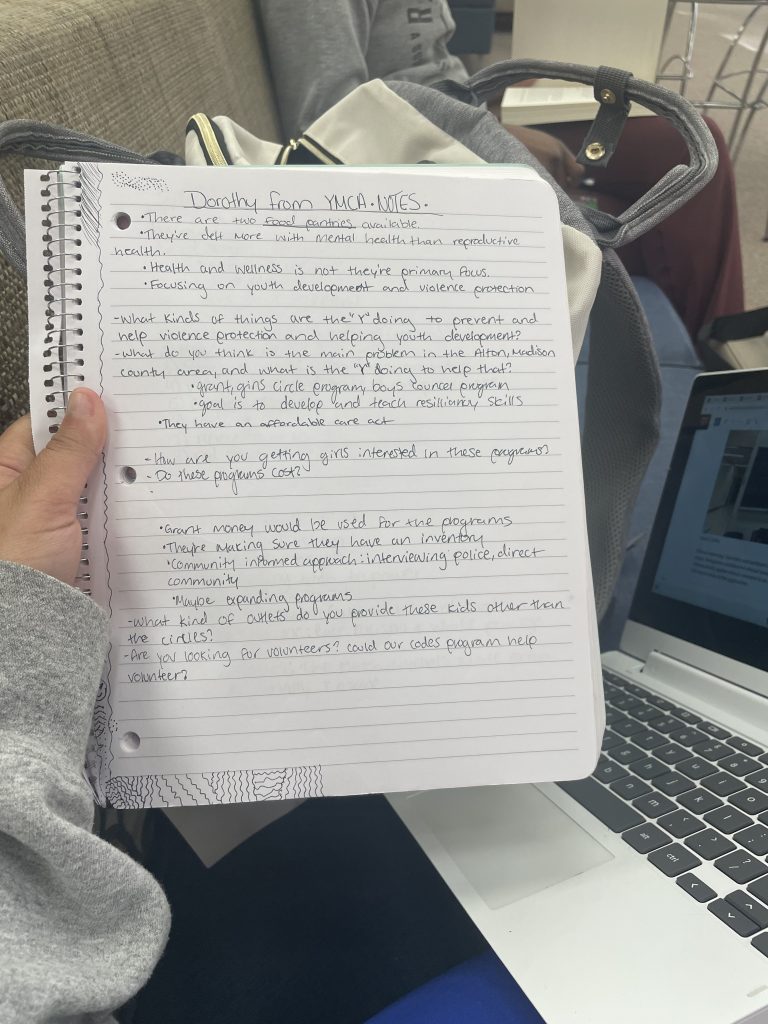
Goal 5: (20%)
Intercultural Knowledge and competence: Articulates insights into own cultural rules and biases and how to recognize and respond to their cultural biases, demonstrates sophisticated understanding of the complexity of elements important to members of another culture in relation to history, values, politics, communication styles, economy, or beliefs and practices.Asks complex questions about other cultures, seeks out and articulates answers to these questions that reflect multiple cultural perspectives, initiates, develops, and suspends judgment in interactions with people who are culturally different than themselves.
I was able to accomplish this goal by reading articles and media provided in class and documenting examples of intercultural knowledge and competence, and by asking questions on topics not understood.
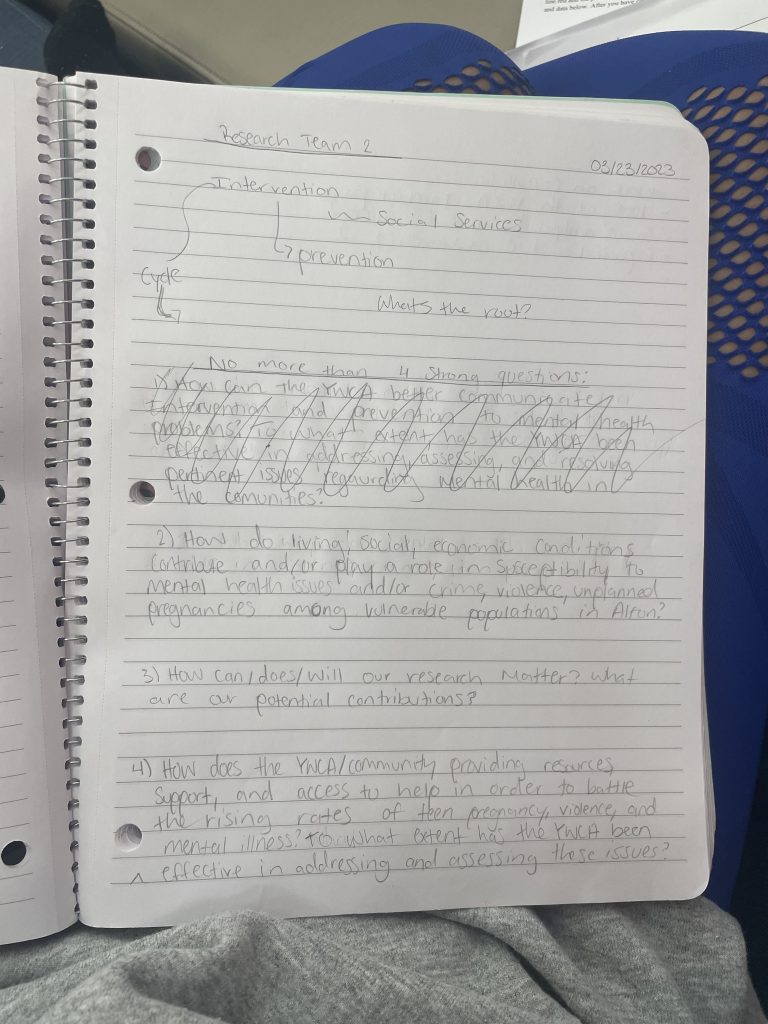
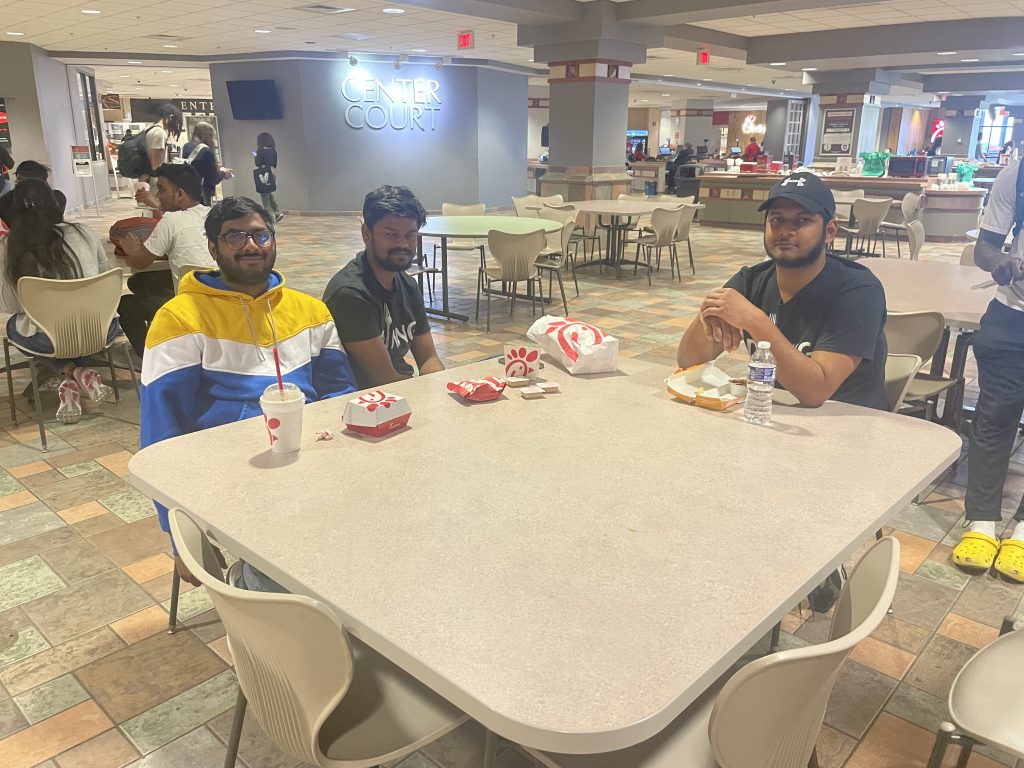
| What concepts are you going to learn, or skills are you going to develop? | How will you learn the content/ develop the skill? | What evidence will you add to the portfolio to demonstrate your learning? | How will you and I assess the evidence of your learning/skills? |
| (20%)Based on Critical and Creative Thinking Be able to comprehend and deliver topics clearly, develop logical plans to solve problems by analyzing others research and assumptions, take risks, transform ideas from multiple texts and combine the knowledge obtained. | By reading articles provided in class, researching topics I don’t understand, and asking questions. | Pictures of ideas and brainstorming, upload any notes taken, and note words I didn’t understand and questions I had. | Explain what the pictures uploaded represent and how they helped my learning process, and upload answers to my questions if found as well as definitions to the words I didn’t knowReflection essayClass participation and contribution to research developmentArtifacts of participation |
| (20%)Based on Ethical Reasoning):Identifies and analyzes their core beliefs and reflects upon their origin. Recognizes multilayered ethical issues and the cross-relationships among them. Independently applies ethical concepts to an ethical question, accurately, and considers full implications of the application. | When writing analysis to articles, or other media include different perspectives and viewpoints that include ethical viewpoints. | Upload my writing, and media that I read and wrote from. | Explain what I learned and obtained from the media read, aside from my writing/ analysis on it.Reflection essayClass participation and contribution to research developmentArtifacts of participationCoding exersise |
| (20%)Based on Collaboration:Helps collaboration move forward by articulating the merits of alternative ideas or proposals. Facilitates collaborators’ contributions by building upon or synthesizing their contributions as well as noticing when someone is not participating and inviting them to engage. Works independently toward team goals by contributing to efforts and meeting deadlines. | Participate in, in class group activities, write an analysis of any interviews, and try my best to contribute to group ideas. | Upload pictures of in class group assignments, any written analysis, and notes of what I’ve contributed.Stakeholder, source analysis, collaborating community, artifacts and photovoice. | Explain pictures and the assignment assigned to them, and explain in a short summary my writing.Reflection essayClass participation and contribution to research developmentArtifacts of participationcollaborate in class everyday, interview practice, stakeholders, contributing to research. |
| (20%)Based on Reading: Evaluates texts’ scholarly significance to apply reading to other contexts or issues.Identifies texts within and across genres, monitoring and adjusting reading strategies and expectations based on their generic nuances. Reads by using an appropriate epistemological lens and can engage in a continuing dialogue within and beyond a discipline or a community of readers. | Document notes on readings, document questions had and words not understood. | Upload summary of readings and any notes taken of readings as well as found answers and definitions. | Explain how the readings contributed to the topic covered in class as well as links to found definitions.Reflection essayClass participation and contribution to research developmentArtifacts of participation |
| (20%)Based on Intercultural Knowledge and Competence:Articulates insights into own cultural rules and biases and how to recognize and respond to their cultural biases. Demonstrates sophisticated understanding of the complexity of elements important to members of another culture in relation to history, values, politics, communication styles, economy, or beliefs and practices.Asks complex questions about other cultures, seeks out and articulates answers to these questions that reflect multiple cultural perspectives.Initiates, develops, and suspends judgment in interactions with people who are culturally different than themselves. | Read articles and media provided in class and document examples of intercultural knowledge and competence, ask questions on topics not understood. | Upload media read, upload analysis of readings, and upload questions. | Explain media read, and found answers to questions.Reflection essayClass participation and contribution to research developmentArtifacts of participation |